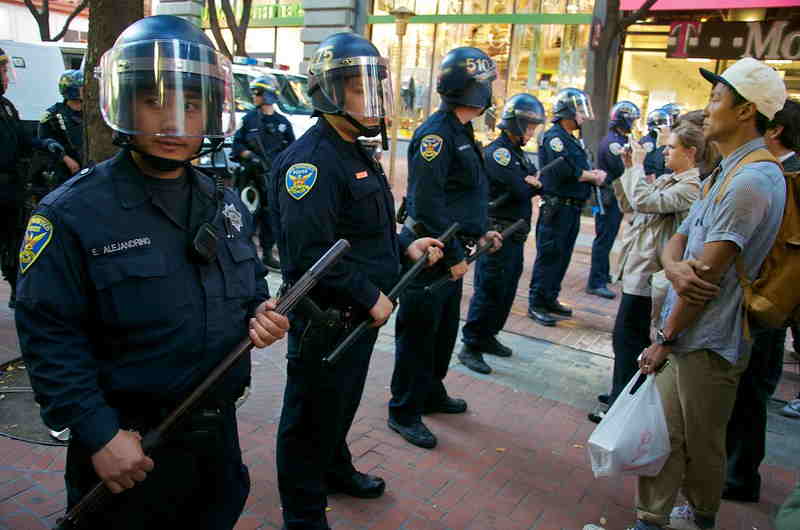San Francisco police linked a woman to a crime using DNA from her rape exam, D.A. Boudin says
By Megan Cassidy,
San Francisco Chronicle
| 02. 14. 2022
Photo of SFPD by Steve Rhodes (CC BY-NC-ND 2.0)
Update: D.A. Chesa Boudin has dismissed the case against the suspect allegedly linked to a property crime from her rape exam DNA.
The San Francisco police crime lab has been entering sexual assault victims’ DNA profiles in a database used to identify suspects in crimes, District Attorney Chesa Boudin said Monday, an allegation that raises legal and ethical questions regarding the privacy rights of victims.
Boudin said his office was made aware of the purported practice last week, after a woman’s DNA collected years ago as part of a rape exam was used to link her to a recent property crime.
If DNA from a rape kit were used without consent for purposes other than investigating the underlying rape case, it may be a violation of constitutional protections against unreasonable searches and seizures as well as California’s Victims’ Bill of Rights, Boudin said.
Such a practice could also create another deterrent to sexual assault victims coming forward with allegations that are already underreported to law enforcement.
“The primary...
Related Articles
By Scott Solomon, The MIT Press Reader | 02.12.2026
Chris Mason is a man in a hurry.
“Sometimes walking from the subway to the lab takes too long, so I’ll start running,” he told me over breakfast at a bistro near his home in Brooklyn on a crisp...
By Katrina Miller, The New York TImes | 02.05.2026
Joseph Yracheta: The Native Biodata Consortium is the first nonprofit data and sample repository within the geographic bounds and legal jurisdiction of an American Indian nation, on the Cheyenne River Sioux Reservation in Eagle Butte, S.D.
NativeBio participated in a ...
By David Jensen, California Stem Cell Report | 02.10.2026
Touchy issues involving accusations that California’s $12 billion gene and stem cell research agency is pushing aside “good science” in favor of new priorities and preferences will be aired again in late March at a public meeting in Sacramento.
The...
By Lauren Hammer Breslow and Vanessa Smith, Bill of Health | 01.28.2026
On Jan. 24, 2026, the New York Times reported that DNA sequences contributed by children and families to support a federal effort to understand adolescent brain development were later co-opted by other researchers and used to publish “race science”...




